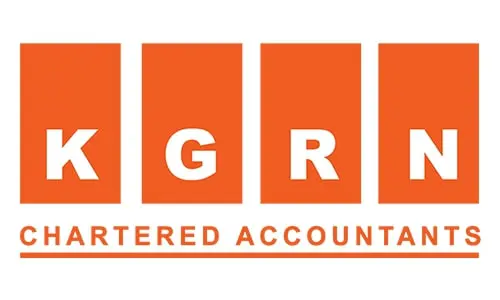Introduction
This blog serves as a comprehensive guide to the UAE Corporate Tax regime, specifically focusing on tax groups. It aims to provide a clear understanding of the formation, compliance obligations, and changes in membership relating to tax groups. This guide is intended for juridical persons in the UAE who are interested in forming or joining a tax group and want to gain insights into the benefits and requirements associated with the tax group regime.
The contents of this guide provide detailed explanations, legislative references, and illustrative examples to facilitate a thorough understanding of the UAE Corporate Tax regime as it pertains to tax groups.
Transfer of shares outside the Tax Group can take place without any impact on the Tax Group. Any change of the Parent Company within the Tax Group should not affect the Tax Group. Compliance with the submission of Financial Statements is also crucial.
For enquiries call @ +971 45 570 204 / Email Us : [email protected]
Conditions must be fulfilled for registering as a Tax Group
1. Voting rights condition
The Parent Company must obtain at least 95% of the voting rights in the Subsidiaries, directly or indirectly through one or more Subsidiaries, to fulfill the voting rights condition. The indirect holding of such voting rights should also be considered to ensure compliance with this condition. Any transfer of voting rights outside the Tax Group will not affect the Tax Group.
2. Profits and net assets condition
The Parent Company must be entitled to at least 95% of each Subsidiary’s profits and net assets, either directly or indirectly through one or more Subsidiaries. The determination of profits and net assets should be based on the financial statements of the Subsidiaries. The impact of different share classes on the profits and net assets should also be carefully analyzed.
3. Exempt Person condition and Qualifying Free Zone Person condition
No member of the Tax Group should be classified as an Exempt Person or a Qualifying Free Zone Person. Any exemption or relief granted should be carefully reviewed to ensure compliance with this condition.
4. Financial Year condition
All members of the Tax Group must follow the same financial year. A newly established juridical person joining a Tax Group or a change of the tax period needs to be duly considered.
5. Accounting Standards condition
The Parent Company and each Subsidiary must adhere to the same accounting standards in preparing their financial statements. Compliance with the accounting standards specified in the applicable legislation of the UAE is paramount for fulfilling this condition.
For enquiries call @ +971 45 570 204 / Email Us : [email protected]
Examples illustrating typical scenarios
Scenario 1 – Fulfillment of Share Capital Ownership Condition
Company X owns 97% of the share capital in Company Y. As a result, Company X fulfills the share capital ownership condition for the formation of a Tax Group with Company Y.
Scenario 2 – Voting Rights Condition Not Met
Company M directly holds 85% of the voting rights in Company N and indirectly holds 10% of the voting rights through Company O. Although the total holding is 95%, Company M does not meet the 95% voting rights condition and cannot form a Tax Group with Company N.
Scenario 3 – Meeting Financial Year Condition
Company P and Company Q, planning to form a Tax Group, both follow the calendar year as their financial year, meeting the financial year condition.
These examples help to illustrate the practical application of the Tax Group conditions and the implications of fulfilling or failing to meet these requirements.
For enquiries call @ +971 45 570 204 / Email Us : [email protected]
Forming and Managing a Tax Group
When forming a Tax Group, it is essential to understand the procedural steps, application process, and requirements. Additionally, it is crucial to highlight the responsibilities of the Parent Company within a Tax Group, particularly pertaining to compliance obligations such as Tax Returns and payment of Corporate Tax. Furthermore, it is important to clarify the procedures and grounds for adding new members to an existing Tax Group.
Application Process and Requirements for Forming a Tax Group
The application process for forming a Tax Group involves several conditions that must be met. The Parent Company and its Subsidiaries must fulfill the following conditions:
- Juridical Persons Condition: Both the Parent Company and each Subsidiary must be recognized as separate legal entities, such as companies or incorporated partnerships with distinct legal personalities.
- Resident Persons Condition: The Parent Company and each Subsidiary must be recognized as Resident Persons under the Corporate Tax Law and applicable Double Taxation Agreements.
- Share Capital Ownership Condition: The Parent Company must own at least 95% of the share capital of each Subsidiary, either directly or indirectly through one or more Subsidiaries.
- Voting Rights Condition: The Parent Company must hold at least 95% of the voting rights of each Subsidiary, either directly or indirectly through one or more Subsidiaries.
- Profits and Net Assets Condition: The Parent Company should be entitled to at least 95% of the profits and net assets of each Subsidiary, either directly or indirectly through one or more Subsidiaries.
For enquiries call @ +971 45 570 204 / Email Us : [email protected]
Responsibilities of the Parent Company within a Tax Group
Once formed, the Parent Company within a Tax Group holds the responsibility for filing a single Tax Return on behalf of all members of the Tax Group. Additionally, the Parent Company is tasked with consolidating the income and losses of the group’s members and ensuring compliance with Corporate Tax regulations.
Adding New Members to an Existing Tax Group
The process for adding new members to an existing Tax Group requires careful consideration of the share capital ownership condition, the voting rights condition, and the profits and net assets condition. These conditions must be continually met to maintain the group’s status as a Tax Group.
By understanding the application process, meeting the required conditions, and fulfilling the responsibilities of the Parent Company, a Tax Group can effectively manage its compliance obligations and address the addition of new members.
the shares in Company A and Company C. Assuming all other conditions of Article 40(1) of the Corporate Tax Law are met, Company B can form a Tax Group with Company C. However, Company A cannot be a member of this Tax Group since Company B’s indirect shareholding in Company A is less than 95% (i.e. 95% * 95% = 90.25%).
Transfer of shares between members of a Tax Group
If a company holds shares of another member of the Tax Group, it’s important to consider whether such shares are actively owned or merely held on behalf of another member. This distinction can impact the assessment of share capital ownership, particularly if the ownership is part of a structured arrangement that does not represent true economic ownership.
For enquiries call @ +971 45 570 204 / Email Us : [email protected]
Voting rights condition
The Parent Company must also own at least 95% of the voting rights of each Subsidiary, either directly or indirectly through one or more Subsidiaries. The 95% threshold allows for a minority interest holder, ensuring that the Parent Company maintains control over the voting rights.
The voting rights should be assessed based on the total voting rights in respect of which the Parent Company has decision-making powers—including the right to vote or appoint/revoke directors, if applicable.
Profits and net assets condition
The Parent Company is required to be entitled to at least 95% of each Subsidiary’s profits and net assets, whether directly or indirectly through one or more Subsidiaries. This condition ensures that the economic interests of the Parent Company are aligned with that of the Subsidiaries and that it holds significant influence over the financial position of the group.
In meeting these conditions, any legal arrangements or agreements, such as option agreements or shareholder voting agreements, that can impact the ownership or control of voting rights, profits or net assets should be carefully considered to ensure compliance with the Tax Group requirements.
Overall, it’s crucial for companies considering forming a Tax Group to ensure that they meet all of these conditions consistently throughout the relevant Tax Period. Reassessment of compliance should occur in the event of changes in ownership or capital structure to maintain adherence to the Tax Group requirements.
For enquiries call @ +971 45 570 204 / Email Us : [email protected]
Specific Tax Considerations for Tax Groups
In this section, we will delve into the specific tax considerations for Tax Groups, including the treatment of Tax Losses, interest deduction limitation rules, Foreign Tax Credits, and implications for Foreign Permanent Establishments.
Treatment of Tax Losses
When it comes to Tax Groups, it’s essential to understand how Tax Losses are applicable. Tax Losses are applicable to Tax Groups and are subject to specific rules regarding their utilization. One important consideration is the order of utilization of Tax Losses, with limits on utilization and the impact of changes in the members of a Tax Group on Tax Losses being vital factors to consider.
Practical Example:
- A Tax Group consisting of Company A and Company B experiences a Tax Loss. Company A has a limit on the utilization of its Tax Loss due to the ownership structure, while Company B can fully utilize its Tax Loss as it meets the ownership threshold. This exemplifies the impact of the ownership conditions on the utilization of Tax Losses within a Tax Group.
For enquiries call @ +971 45 570 204 / Email Us : [email protected]
Interest Deduction Limitation Rule
The General Interest Deduction Limitation Rule also applies to Tax Groups. The implications of changes in the members of a Tax Group on unutilized Net Interest Expenditure is a crucial aspect to take into account when considering the interest deduction limitation rules within a Tax Group.
Practical Example:
- Company X, a member of a Tax Group, has unutilized Net Interest Expenditure due to changes in its ownership structure. This unutilized interest expenditure will have implications on the overall interest deduction limitation for the Tax Group, impacting the tax position of the entire group.
Foreign Tax Credits and Foreign Permanent Establishments
Tax Groups also need to consider the application of Foreign Tax Credits and the treatment of Foreign Permanent Establishments. Understanding how the Tax Group status affects the utilization of Foreign Tax Credits and the calculation of Taxable Income for Foreign Permanent Establishments is crucial for tax planning and compliance within a Tax Group.
Practical Example:
- Company Y, as part of a Tax Group, has Foreign Tax Credits that need to be consolidated and utilized effectively within the Tax Group. Additionally, the treatment of Foreign Permanent Establishments within the Tax Group significantly impacts the group’s overall tax position.
In summary, Tax Groups are subject to specific tax considerations, including the treatment of Tax Losses, interest deduction limitation rules, Foreign Tax Credits, and implications for Foreign Permanent Establishments. Understanding these provisions is crucial for effective tax planning and compliance within a Tax Group.
For enquiries call @ +971 45 570 204 / Email Us : [email protected]
Updates and Amendments
This section is intended to provide a log of any updates or amendments made to this document. It serves as a record to track changes and ensure users are aware of the latest information.
| Date | Description of Changes |
|---|---|
| 2024-01-15 | Initial version created and published on the UAE CT webpage |
Any further updates or amendments to this document will be duly recorded in this section to maintain transparency and ensure the document remains current.
For enquiries call @ +971 45 570 204 / Email Us : [email protected]
Related Posts







